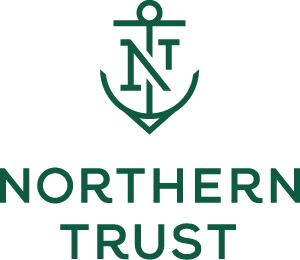
Opinions expressed in AGB blogs are those of the authors and not necessarily those of the institutions that employ them or of AGB.
The 2020-2021 academic year presented challenges for educational institutions, pivoting their initial plans and strategies to support the transition to remote learning and other health and safety measures. In addition to the significant toll taken on human health and well-being, the scale of the economic impacts stemming from the COVID-19 crisis has also been stunning.
These circumstances called on endowments to provide more support for students, greater investment in IT infrastructure and updates to physical infrastructure to accommodate ventilation and other updated safety requirements. These pressures coincided with endowment portfolios going through volatile markets. The systemic nature of the pandemic, impacting the health of the portfolio and the impacts on the well-being of faculty, staff and students, taxed university resources along a number of dimensions, and demonstrates the importance of building resilience across functions to address broad based, systemic risks. As endowments are reimaging long-term investing techniques many are considering ways to integrate additional resilience in the portfolio, and turning to sustainable investing as an avenue. This is an approach that acknowledges that environmental, social and governance (ESG) issues are business issues; when managed well, these factors can position a company for success. When managed poorly, they can lead to negative externalities that can result in reputational and financial risk. Here’s what you should know about how this approach aligns with endowment investment objectives.
MITIGATING RISKS WITH ESG
Companies also had to respond to this systemic distress by shifting business as usual to a new normal quickly. Assessing how issuers navigated this transition highlights the importance of integrating ESG (environmental, social and governance) analytics into the investment process as a means of measuring broad resilience. Endowments can integrate ESG data to create a more holistic view of risks and opportunities — resulting in more informed investment decisions. According to a study done by Morningstar, 70% of sustainable equity funds ranked in the top halves of their categories and 44% ranked in the best performing quartile.
This observation can be seen across asset classes. Take for example the global developed equity index MSCI World Index versus the MSCI ESG World Leaders Index. MSCI designed the ESG index family to leverage ESG risk ratings to provide relatively low tracking error and broad market exposure. The series launched in late 2007, and during its life cycle has largely performed in line with the world benchmark. The World ESG Leaders index outperformed its cap-weighted parent by 1.1% in the first half of the year, which was 84% driven by the security selection during this time period. This index’s performance was particularly strong during the significant volatility seen during the first quarter of 2020. Looking into the drivers of the outperformance, we group the securities by their individual environmental, social and governance scores into three categories of leaders, average and laggards. Not surprisingly, the ESG leaders minus laggards are positive across all three metrics, with the spread in governance the largest at nearly 6%. Companies that lead the pack on the social dimension outperformed their laggard counterparts by 4.4%, an interesting indicator underscoring the adept way the leader companies respond to their stakeholders.
Similar results can be found in different parts of the equity universe, including within emerging markets equities and in fixed income, across investment grade, high yield and municipal markets between ESG leaders and laggards. Corporate ESG leader issuers also traded at tighter spreads during the market stress, an interesting characteristic when considering downside mitigation1.
ENDOWMENTS EMBRACE SUSTAINABILITY
The market stress brought on by the COVID-19 crisis has changed business as usual. The data suggests that sustainable issuers have been better prepared to navigate the systemic shocks of the pandemic, and preserve value, demonstrating the case for sustainable investing. Pre-pandemic, endowments were already at the forefront of recognizing the value of ESG analytics in investment decision making, with U.S. educational institutions allocating $378 billion to sustainable investing strategies in 2020, a 19% increase over 20182. This adoption rate isn’t surprising; many North American colleges and universities have embraced sustainability topics in courses and degree programs, and have adopted sustainable practices, renewable energy use in campus facilities; composting and recycling programs, and in planning for new construction. Bolstered by the performance of sustainable strategies during the market downturn, and drawing on their institutional commitment to embracing long term sustainability in a multi-dimensional way, we anticipate that adoption of sustainable investing in the endowments space will only continue to grow looking ahead.
IMPORTANT INFORMATION. For Use with Institutional Investors/Financial Professionals Only. Not For Retail Use.
For Asia-Pacific markets, this information is directed to institutional, professional and wholesale clients or investors only and should not be relied upon by retail clients or investors. The information is not intended for distribution or use by any person in any jurisdiction where such distribution would be contrary to local law or regulation. Northern Trust and its affiliates may have positions in and may effect transactions in the markets, contracts and related investments different than described in this information. This information is obtained from sources believed to be reliable, and its accuracy and completeness are not guaranteed. Information does not constitute a recommendation of any investment strategy, is not intended as investment advice and does not take into account all the circumstances of each investor. Opinions and forecasts discussed are those of the author, do not necessarily reflect the views of Northern Trust and are subject to change without notice.
This report is provided for informational purposes only and is not intended to be, and should not be construed as, an offer, solicitation or recommendation with respect to any transaction and should not be treated as legal advice, investment advice or tax advice. Recipients should not rely upon this information as a substitute for obtaining specific legal or tax advice from their own professional legal or tax advisors. Information is subject to change based on market or other conditions.
Forward-looking statements and assumptions are Northern Trust’s current estimates or expectations of future events or future results based upon proprietary research and should not be construed as an estimate or promise of results that a portfolio may achieve. Actual results could differ materially from the results indicated by this information.
Past performance is no guarantee of future results. Performance returns and the principal value of an investment will fluctuate. Performance returns contained herein are subject to revision by Northern Trust. Comparative indices shown are provided as an indication of the performance of a particular segment of the capital markets and/or alternative strategies in general. Index performance returns do not reflect any management fees, transaction costs or expenses. It is not possible to invest directly in any index. Gross performance returns contained herein include reinvestment of dividends and other earnings, transaction costs, and all fees and expenses other than investment management fees, unless indicated otherwise.
Northern Trust Asset Management is composed of Northern Trust Investments, Inc. Northern Trust Global Investments Limited, Northern Trust Fund Managers (Ireland) Limited, Northern Trust Global Investments Japan, K.K, NT Global Advisors, Inc., 50 South Capital Advisors, LLC, Belvedere Advisors LLC and investment personnel of The Northern Trust Company of Hong Kong Limited and The Northern Trust Company.
© 2021 Northern Trust Corporation. Head Office: 50 South La Salle Street, Chicago, Illinois 60603 U.S.A.
Emily Lawrence is director of sustainable investing for the Institutional Client Group of Northern Trust Asset Management.
Sharee Zlatkova is an investment associate of sustainable investing for the Institutional Client Group of Northern Trust Asset Management.
References and Resources
- Learn more about sustainable investing and our sustainable investing team at Northern Trust Asset Management.
- PAPER: Sustainable Investing Philosophy
- REPORT: Capital Market Assumptions – Five Year Outlook (2021 Edition)
- SERVICES: Sustainable Investing Services
With Thanks to AGB Sponsor: Northern Trust
Emily Lawrence
Director, Sustainable Investing
Institutional Client Group
Northern Trust Asset Management
Northern Trust
EL84@ntrs.com
Sharee Zlatkova
Investment Associate, Sustaining Investing
Institutional Client Group
Northern Trust Asset Management
Northern Trust


